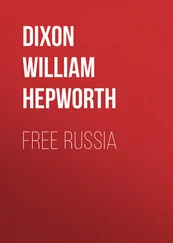Nikolai Nekrasov - Who Can Be Happy and Free in Russia?
Здесь есть возможность читать онлайн «Nikolai Nekrasov - Who Can Be Happy and Free in Russia?» весь текст электронной книги совершенно бесплатно (целиком полную версию без сокращений). В некоторых случаях можно слушать аудио, скачать через торрент в формате fb2 и присутствует краткое содержание. Год выпуска: 2005, Жанр: Поэзия, на английском языке. Описание произведения, (предисловие) а так же отзывы посетителей доступны на портале библиотеки ЛибКат.
- Название:Who Can Be Happy and Free in Russia?
- Автор:
- Жанр:
- Год:2005
- ISBN:нет данных
- Рейтинг книги:3 / 5. Голосов: 1
-
Избранное:Добавить в избранное
- Отзывы:
-
Ваша оценка:
- 60
- 1
- 2
- 3
- 4
- 5
Who Can Be Happy and Free in Russia?: краткое содержание, описание и аннотация
Предлагаем к чтению аннотацию, описание, краткое содержание или предисловие (зависит от того, что написал сам автор книги «Who Can Be Happy and Free in Russia?»). Если вы не нашли необходимую информацию о книге — напишите в комментариях, мы постараемся отыскать её.
Who Can Be Happy and Free in Russia? — читать онлайн бесплатно полную книгу (весь текст) целиком
Ниже представлен текст книги, разбитый по страницам. Система сохранения места последней прочитанной страницы, позволяет с удобством читать онлайн бесплатно книгу «Who Can Be Happy and Free in Russia?», без необходимости каждый раз заново искать на чём Вы остановились. Поставьте закладку, и сможете в любой момент перейти на страницу, на которой закончили чтение.
Интервал:
Закладка:
Now, wasn't that nice?"
"Yes," answer the peasants;
"Yes, well might one envy
The noble Pomyéshchick!
His life was so sweet
There was no need to leave it."
"And now it is past….
It has vanished for ever! 540
Hark! There's the bell tolling!"
They listen in silence:
In truth, through the stillness
Which settles around them,
The slow, solemn sound
On the breeze of the morning
Is borne from Kusminsky….
"Sweet peace to the peasant!
God greet him in Heaven!"
The peasants say softly, 550
And cross themselves thrice;
And the mournful Pomyéshchick
Uncovers his head,
As he piously crosses
Himself, and he answers:
"'Tis not for the peasant
The knell is now tolling,
It tolls the lost life
Of the stricken Pomyéshchick.
Farewell to the past, 560
And farewell to thee, Russia,
The Russia who cradled
The happy Pomyéshchick,
Thy place has been stolen
And filled by another!…
Heh, Proshka!" (The brandy
Is given, and quickly
He empties the glass.)
"Oh, it isn't consoling
To witness the change 570
In thy face, oh, my Motherland!
Truly one fancies
The whole race of nobles
Has suddenly vanished!
Wherever one goes, now,
One falls over peasants
Who lie about, tipsy,
One meets not a creature
But excise official,
Or stupid 'Posrédnik,' [36] The official appointed to arrange terms between the Pomyéshchicks and their emancipated serfs.
580
Or Poles who've been banished.
One sees the troops passing,
And then one can guess
That a village has somewhere
Revolted, 'in thankful
And dutiful spirit….'
In old days, these roads
Were made gay by the passing
Of carriage, 'dormeuse,'
And of six-in-hand coaches, 590
And pretty, light troikas;
And in them were sitting
The family troop
Of the jolly Pomyéshchick:
The stout, buxom mother,
The fine, roguish sons,
And the pretty young daughters;
One heard with enjoyment
The chiming of large bells,
The tinkling of small bells, 600
Which hung from the harness.
And now?… What distraction
Has life? And what joy
Does it bring the Pomyéshchick?
At each step, you meet
Something new to revolt you;
And when in the air
You can smell a rank graveyard,
You know you are passing
A nobleman's manor! 610
My Lord!… They have pillaged
The beautiful dwelling!
They've pulled it all down,
Brick by brick, and have fashioned
The bricks into hideously
Accurate columns!
The broad shady park
Of the outraged Pomyéshchick,
The fruit of a hundred years'
Careful attention, 620
Is falling away
'Neath the axe of a peasant!
The peasant works gladly,
And greedily reckons
The number of logs
Which his labour will bring him.
His dark soul is closed
To refinement of feeling,
And what would it matter
To him, if you told him 630
That this stately oak
Which his hatchet is felling
My grandfather's hand
Had once planted and tended;
That under this ash-tree
My dear little children,
My Vera and Gánushka,
Echoed my voice
As they played by my side;
That under this linden 640
My young wife confessed me
That little Gavrióushka,
Our best-beloved first-born,
Lay under her heart,
As she nestled against me
And bashfully hid
Her sweet face in my bosom
As red as a cherry….
It is to his profit
To ravish the park, 650
And his mission delights him.
It makes one ashamed now
To pass through a village;
The peasant sits still
And he dreams not of bowing.
One feels in one's breast
Not the pride of a noble
But wrath and resentment.
The axe of the robber
Resounds in the forest, 660
It maddens your heart,
But you cannot prevent it,
For who can you summon
To rescue your forest?
The fields are half-laboured,
The seeds are half-wasted,
No trace left of order….
O Mother, my country,
We do not complain
For ourselves—of our sorrows, 670
Our hearts bleed for thee:
Like a widow thou standest
In helpless affliction
With tresses dishevelled
And grief-stricken face….
They have blighted the forest,
The noisy low taverns
Have risen and flourished.
They've picked the most worthless
And loose of the people, 680
And given them power
In the posts of the Zemstvos;
They've seized on the peasant
And taught him his letters—
Much good may it do him!
Your brow they have branded,
As felons are branded,
As cattle are branded,
With these words they've stamped it:
'To take away with you 690
Or drink on the premises.
Was it worth while, pray,
To weary the peasant
With learning his letters
In order to read them?
The land that we keep
Is our mother no longer,
Our stepmother rather.
And then to improve things,
These pert good-for-nothings, 700
These impudent writers
Must needs shout in chorus:
'But whose fault, then, is it,
That you thus exhausted
And wasted your country?'
But I say—you duffers!
Who could foresee this?
They babble, 'Enough
Of your lordly pretensions!
It's time that you learnt something, 710
Lazy Pomyéshchicks!
Get up, now, and work!'
"Work! To whom, in God's name,
Do you think you are speaking?
I am not a peasant
In 'laputs,' good madman!
I am—by God's mercy—
A Noble of Russia.
You take us for Germans!
We nobles have tender 720
And delicate feelings,
Our pride is inborn,
And in Russia our classes
Are not taught to work.
Why, the meanest official
Will not raise a finger
To clear his own table,
Or light his own stove!
I can say, without boasting,
That though I have lived 730
Forty years in the country,
And scarcely have left it,
I could not distinguish
Between rye and barley.
And they sing of 'work' to me!
"If we Pomyéshchicks
Have really mistaken
Our duty and calling,
If really our mission
Is not, as in old days, 740
To keep up the hunting,
To revel in luxury,
Live on forced labour,
Why did they not tell us
Before? Could I learn it?
For what do I see?
I've worn the Tsar's livery,
'Sullied the Heavens,'
And 'squandered the treasury
Gained by the people,' 750
And fully imagined
To do so for ever,
And now … God in Heaven!"…
The Barin is sobbing!…
The kind-hearted peasants
Can hardly help crying
Themselves, and they think:
"Yes, the chain has been broken,
The strong links have snapped,
And the one end recoiling 760
Has struck the Pomyéshchick,
The other—the peasant."
PART II.
THE LAST POMYÉSHCHICK
PROLOGUE
The day of St. Peter—
And very hot weather;
The mowers are all
At their work in the meadows.
The peasants are passing
A tumble-down village,
Called "Ignorant-Duffers,"
Of Volost "Old-Dustmen,"
Of Government "Know-Nothing.'
They are approaching 10
The banks of the Volga.
They come to the river,
The sea-gulls are wheeling
And flashing above it;
The sea-hens are walking
About on the sand-banks;
Интервал:
Закладка:
Похожие книги на «Who Can Be Happy and Free in Russia?»
Представляем Вашему вниманию похожие книги на «Who Can Be Happy and Free in Russia?» списком для выбора. Мы отобрали схожую по названию и смыслу литературу в надежде предоставить читателям больше вариантов отыскать новые, интересные, ещё непрочитанные произведения.
Обсуждение, отзывы о книге «Who Can Be Happy and Free in Russia?» и просто собственные мнения читателей. Оставьте ваши комментарии, напишите, что Вы думаете о произведении, его смысле или главных героях. Укажите что конкретно понравилось, а что нет, и почему Вы так считаете.











